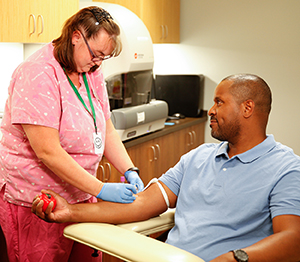Preparing for Outpatient Surgery
You are scheduled for outpatient surgery. This is also called same-day or ambulatory surgery. This sheet gives you more information about how to prepare. If you have any questions or are unclear about any instructions, be sure to check with your surgeon.
The weeks before surgery
-
Have any tests as instructed. These help show that you are healthy enough for surgery.
-
Tell your healthcare provider about all the medicines you take. This includes prescription medicines. It also includes over-the-counter medicines, herbs, vitamins, and other supplements. Tell your provider if you take aspirin, ibuprofen, or medicine to thin your blood or prevent blood clots. You may need to stop taking some or all of these before surgery.
-
Tell your provider if you have allergies to any medicines, medical products such as latex or tape, or foods.
-
If instructed, call the surgical facility ahead of time. During this call, you may discuss how to register and fill out needed forms.
 |
| Be sure to have any tests your healthcare provider orders. |
Preparing at home
-
If you smoke, it's important to quit, ideally about 4 weeks before the procedure.
-
Arrange for an adult family member or friend to drive you home after surgery.
-
If you have a cold, fever, sore throat, diarrhea, or other health problem, let your surgeon know. He or she can decide if the surgery must be delayed.
-
If you can’t keep your surgery appointment, let your surgeon and surgical facility know right away.
-
The night before or morning of your surgery, wash the surgical area if instructed. Don't shave the area. If needed, hair may be trimmed or removed at the surgical facility.
-
Follow any directions you are given for taking medicines and for not eating or drinking before surgery.
Arriving for surgery
-
Know when you need to arrive at the facility. Be on time. Know where you are supposed to go once you arrive at the facility
-
Leave valuables at home, including any jewelry.
-
Wear comfortable clothing. Don’t wear makeup or perfume. Bring your glasses, and don't wear your contact lenses.
-
Bring your insurance forms and card. If there is a copayment, bring a method to pay it.
Online Medical Reviewer:
Deepak Sudheendra MD
Online Medical Reviewer:
Paula Goode RN BSN MSN
Online Medical Reviewer:
Tara Novick
Date Last Reviewed:
2/1/2022
© 2000-2024 The StayWell Company, LLC. All rights reserved. This information is not intended as a substitute for professional medical care. Always follow your healthcare professional's instructions.